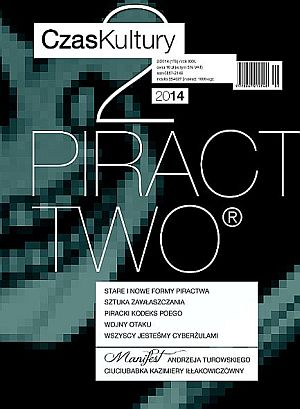
We kindly inform you that, as long as the subject affiliation of our 300.000+ articles is in progress, you might get unsufficient or no results on your third level or second level search. In this case, please broaden your search criteria.

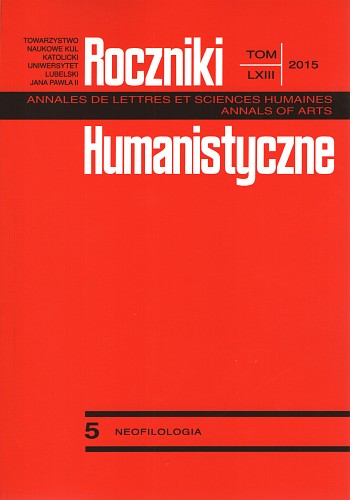
The paper endeavours to analyse Ian McEwan’s self-reflexive novel with the theoretical apparatus provided by the psychoanalytic theory of Jacques Lacan. McEwan designs his novel as a fictitious narrative written by Briony Tallis, an aging novelist who wishes to atone for the childhood blunder that ruined the lives of her sister, Cecilia, and her sister’s beloved, Robbie. In order to gain reader’s sympathy, Briony describes her thirteen-year-old self as an idealistic and innocent child, deprived of paternal guidance, governed by the unconscious structures of the Symbolic Order. The girl’s compulsive craving for order and for control of the reality around her is linked to her narcissistic constitution, which, as Freud suggests, proves an important quality in the creative writing process. The paper follows Briony’s efforts to devise an elaborate expiative fantasy which allows her not only to create the appropriate mise-en-scène of personal atonement, but also to establish the coordinates of her desire to achieve some purpose through her writing.
More...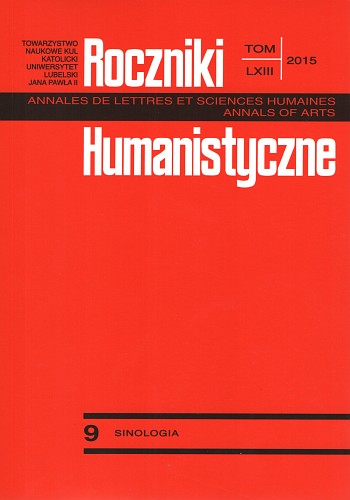
The following paper discusses concept of paradigmatic person junzi 君子 and ethos in Analects. Paradigmatic person junzi is an Confucian ideal man, responsible for maintaining dao in a family, social group and state by practicing a ren relations with other people hence helping them to build harmonious society. In the first part I shortly analyze what is ren and amiable virtues, in the second part I describe paradigmatic person’s most important features as well as junzi’s opposite xiao ren 小人 (small man) such as presented in Confucius’ Analects.
More...
The paper discusses the realm of sacred in Confucius’ Analects, on the basis of western sacred-profane dichotomy. It contains analysis of following concepts: heaven (tian), order of heaven (tianming), under heaven (tianxia), fate (ming), natural order (dao) and ritual (li). The author argues that some features of above-mentioned concepts could be described as sacred in spite of cultural differences and the general view that Confucius’ thought was mainly perceived as agnostic at best and that they constitute symbolic space that is sacred in a specific Confucian way. The feeling of being associated with what is sacred emerges from taking part in rituals and maintaining a natural order dao according to heaven’s instructions tianming.
More...
This paper examines how selected Caribbean writers use the English language to represent their nations’ cultural and social contexts. The political and sociolinguistic transmutations the English language undergoes in post-colonial literary contexts and societies have engaged the attention of both literary and linguistic scholars over the years. As conceptualized in my paper, language as a synecdoche of cultural identity counter-identifies with the language and culture of the metropolitan centre; language as a marker of cultural identity challenges the hegemonic territoriality of the dominant code of the so-called standard English. The writings to be examined in this paper epitomize how post-colonial writers adapt and modify the English language to fit their own cultural, social, and political exigencies.
More...
This paper examines representations of Africa and Africans in Joan Baxter’s short story collection "Strangers Are Like Children". Baxter’s short stories are about Africa, not of it. Baxter’s keen personal interest coupled with her work as a journalist prompted her to investigate and write about Africa that surrounds her. As a result, Joan Baxter succeeds in presenting African and expatriate characters who come off the page as vibrant, believable individuals living in an equally vibrant and believable place. Her first short story collection, "Strangers Are Like Children: Stories of Africa" (1996) consists of fifteen stories which wrestle with the prickly issues of sexism, political embroilment, juju and supernatural beliefs, and other pressing West African considerations. Baxter sees the failings of white culture as surely as she detects flaws in West African customs. She writes as an involved member of her West African community, not set apart from it. The commitment she shows for the causes of these West African people, especially of West African women, is commendable in its readjustment of old paradigms. Baxter does not simply demonize African Others, nor keep herself distant from them. Baxter, through her short stories, has come to understand herself better through the African Other.
More...
This paper examines depictions of Africa and Africans in Audrey Thomas's fiction. Her Africa is a landscape peopled with "primitive savage"Africans, as perceived by anxious white female expatriates, and fraught with dangers as evidenced time and again in her writing. Audrey Thomas employs traditional images and narrative conventions to describe Africa and Africans, conventions of the sort disparaged by critics such as Dorothy Hammond, Alta Jablow, China Achebe, Christopher L. Miller, Edward Said and others. I shall take to task several critical reviews of Thomas's work that either gloss over or entirely neglect to address the issue of what constitutes Thomas's Africa. The Africa, specifically the Ghana, of Thomas's stories is the setting for psychological investigation, a place where people and events are stripped raw, where madness is not only given free rein but exacerbated. But this Africa is a symbolic place, not a real one.
More...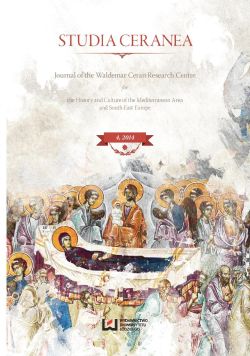
The article analyses the story of the prophet-king Melchizedek (mentioned in Gen 14,17–20, Ps 110,4 and three passages in Heb: 5,6–10, 6,20, 7,1–17), recorded in Slavonic historical texts: the first and second translation of Palaea Historica, and the first and second edition of the so-called apocryphal cycle of Abraham (in which there are several references to Melchizedek). Compared to the scarce information about Melchizedek from the Old and New Testament, stories of extra-biblical origin communicate a significant amount of detail concerning the king-priest, comprising a description of nearly all of his life. Comparison of key episodes in the life of Melchizedek and Abraham (such as origin, revelation, conflict with their pagan parent, leaving home and journey, promise of greatness given by God, testimony or theophany or angelophany, experience of human sacrifice, a change of name) in the Palaea and the cycle confirms – based on the Slavonic material – analogies in the construction of the two protagonists. Both accounts – in the Palaea and the cycle – make the characters more “full-blooded” than in the Bible. The story of Melchizedek presented in the Palaea is characterised by fragmentation (being contained in four chapters), and disrupts chronological order to a small degree, emphasising cause-and-effect relationships, while at the same time it can be considered as a prototype or a singular variant of Vitae: the structure and selection of content of the bio- or hagiographic story meet the characteristics of the genre.
More...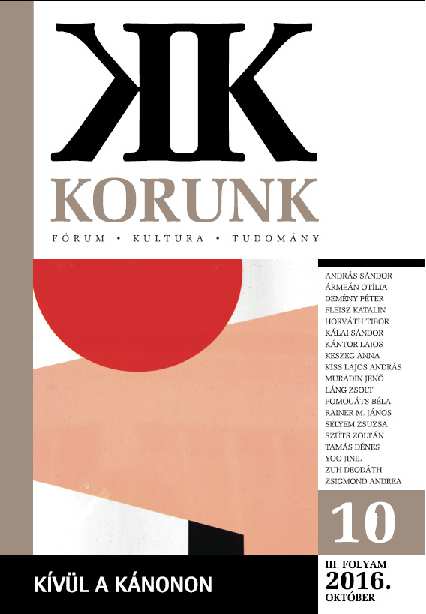
The triumph of Korean popular culture started with the export of television series – dramas – in the late 1990’s. It soon ignited the popularity of Korean cultural commodities – more dramas and then music – in early 2000, first in East-Asia and later in USA and Europe. This tidal wave of Korean popular culture has even got a name – hallyu. Heterogeneous in nature, this phenomenon supports the consumption and distribution of Korean elite culture, especially literature worldwide.
More...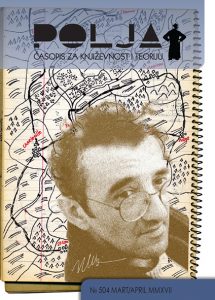
Završavanje romana nam nosi izvesna, ne baš brojna zadovoljstva, a jedno od njih jeste da počnemo da ga zaboravljamo, da ga se sećamo kao sna ili košmara koji se razobličuje i dopušta nam da ga sučelimo sa novim knjigama i danima...
More...
Roman Nacistička književnost u Americi, objavljen 1996, po mnogo čemu je simptomatičan za Roberta Bolanja, promatrajući ga kao djelo za sebe ili u kontekstu njegovog cjelokupnog romanesknog opusa.
More...

U svom velikom romanu, petoknjižju združenom pod naslovom 2666, u Knjizi o Amalfitanu, Roberto Bolanjo kroz slučaj Čileanca Amalfitana i njegove odbjegle supruge...
More...
Nabrojati knjige poezije pripovedača Roberta Bolanja je sveobuhvatan i pomalo proizvoljan čin. Većinu tih tomova teško je nabaviti, a naporno ih je čitati.
More...
Monteroso je napisao da se latinoamerički pisac pre ili kasnije suočava sa tri moguće sudbine, a to su izgnanstvo, zatvor li pogreb.
More...
Između Nacističke literature u Amerikama i Udaljene zvezde, dvaju romana Roberta Bolanja objavljena u nekoliko meseci 1996, značajan prostor je ispunjen eksplodiranjem priče o „Zloglasnom Ramiresu Hofmanu“...
More...

Nijedan drugi latinoamerički pisac posle „buma“ 60-ih godina nije toliko hvaljen, niti je privukao toliko međunarodne pažnje kao Roberto Bolanjo.
More...
Narativni opus Roberta Bolanja jedan je od najoriginalnijih projekata latinoameričke književnosti u poslednjoj deceniji.
More...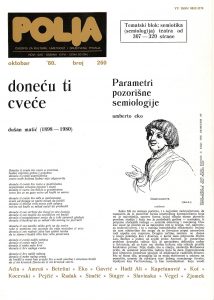
Za Žasna Amruša (Jean Amrouche, 1907—1962) mnogi misle da je, iako rođen u berberskoj alžirskoj porodidi, francuski književnik. Ništa čudno, jer je i on sam to na nedvosmislen način tvrdio, dvojeći, međutim, književni i nacionalni identitet. Rečenicom koja oe postati čuvena, Amruš nalazi izraz za stanje duhovne pometenosti, plod dveju intimnih izvesnosti, na izgled nepomirljivih: »Francuska je duh moje duše, Alžir duša moga duha «. Ovaj lucidni analitičar i osečajni pesnik nije bio jedini Alžirac koga je u doba kolonijalne potčinjenosti razdirala ta nepodnošljiva dvojnost identiteta — od joj je samo prvi na francuskom dao oblik autentične poezije visokog u'mnog i emocionalnog dometa. U Amrušu se iskazalo čitavo jedno pokoljenje, a posle prvih nerazumevanja i neverica prihvatilo ga je i naredno, buntoVno, nepomirljivo, pokoljenje rata za nezavisnost, shvatajući da je na svoj, manje upadljiv, ali ne i manje intenzivan i proižvljen način, i taj »večni Jugurta« vodio borbu na istoj stazi i završio je »bez pobednika« u samoj godini osilobođenja.
More...